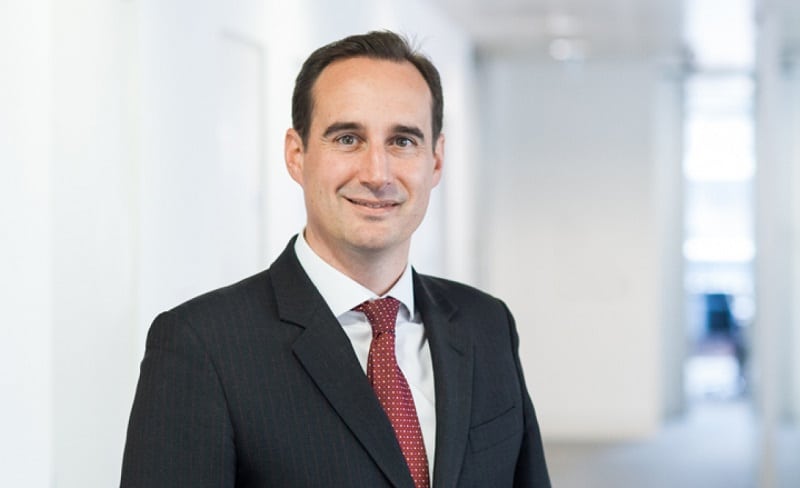The US equities fund, which is approaching £500m in assets under management, has underperformed the sector average over three and six months, but is first quartile over three and five years.
Grieves (pictured) told Portfolio Adviser that achieving outperformance without the so-called Faang stocks (Facebook, Apple, Amazon, Netflix and Google) has been “really hard”.
“We have owned these companies before three or four years ago. We bought them cheap and sold them when we thought they got expensive,” said Grieves, who manages the fund with Nick Ford.
Instead, the US Opportunities fund’s top holdings are outsourcing business PRA Health Sciences and DIY retailer Lowe’s, which are both 2.69% of the portfolio. Tool manufacturer Snap-On and fuel cards business Wex are the next highest positions, representing 2.59% of the portfolio.
When it comes to Faang valuations, Grieves compares Amazon to another retailing giant as an example of why they look stretched.
“Walmart did very well in its first couple of years as a share and then gave you a terrible return in the next 20 years even as sales tripled. Just because sales triple doesn’t mean you’re not going to get a great share return.”
Amazon’s 60x Ebitda doesn’t leave much room for error. “God help us if it doesn’t work,” Grieves says.
ETF threats
The US equity duo sees several threats to Faang stocks, including the rise of passives, which hold around 15% of US stocks, according to the Bank of International Settlements.
Grieves said: “A significant proportion goes into smart beta type funds. These all tend to put the winning names in their ETFs, so Apple goes in growth and Apple goes in value.
“It’s fine on the way up, but if we get a market dislocation in the future, people will come to take money out of those ETFs and take down those names along with it.”
In the MSCI USA Growth Index Apple is the largest constituent representing 7.57% of the index, while it does not appear in the corresponding value index.
However, in the MSCI USA Enhanced Value Index, Apple accounts for 10.42% and is the top holding. That index tracks companies that exhibit greater value characteristics than their sector, based on price-to-book value, price-to-forward earnings and enterprise value-to-cash flow from operations.
Passives specialist Peter Sleep, a senior investment manager at 7IM, disputed Grieves’ claim smart beta products do not pick winners. “Smart beta is about reweighting the market cap indexes in a rules based and systematic fashion, based in long term, evidence based research,” Sleep said.
The $41bn Vanguard US Value Portfolio, the largest fund tracking the style, does not include Apple, he pointed out, while the corresponding £37bn US Growth Portfolio does.
Ditching tech
Miton isn’t the only top-quartile US equity fund in the North America sector that has dropped big-name technology stocks from its top 10.
While, Miton US Opportunities has not been able to maintain its top quartile performance over the last year, VT De Lisle America is top quartile over nearly every period without Faang exposure in its top 10. It has more than 8% each in banking stocks Townebanke and Bancorp, according to Trustnet. It holds more than 4% in investment manager Westwood and retailer Johnson Outdoors.
JOHCM Small Mid Cap Equity, Brown Advisory US Mid Cap Growth and the 7IM US Equity Value funds are all top quartile over a one-year period despite shunning Faang stocks from their top 10.
However, Faang stocks have certaintly helped Baillie Gifford American, which is the top performing fund over one and three years in the sector. It holds 9% in Amazon, its largest holding, and Netflix, Facebook and Alphabet also feature in its top 10.
The fund has returned 26.8% over the last six months. Over three years it has returned 123.7%, according to Trustnet.
It topped performance tables across Investment Association sectors for H1 2018 along with other tech-heavy funds from the Baillie Gifford stable, Long Term Growth and Global Discovery.







